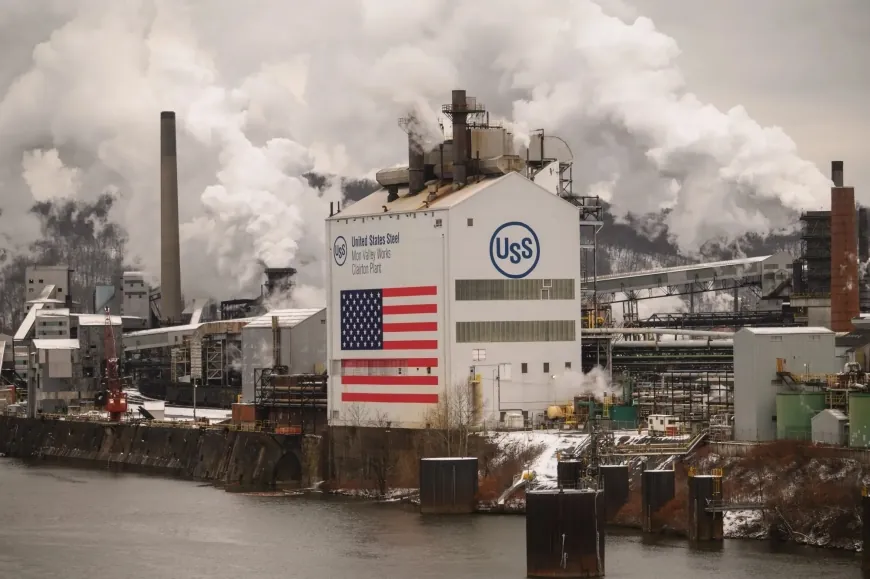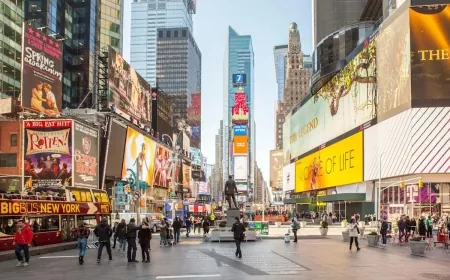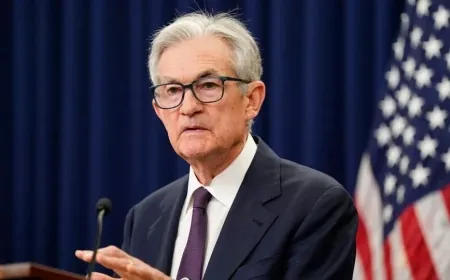US Steel Acquisition by Nippon Steel Approved with Conditions
Nippon Steel's $14.1B acquisition of US Steel gains final U.S. approval with strict security terms and $14B in added investments. Deal set to close June 18.

Nippon Steel Corporation is on track to finalize its $14.1 billion acquisition of United States Steel Corporation following a conditional green light from the Trump administration. The deal, which has faced significant political and regulatory scrutiny over the past year, is now expected to close by June 18, aligning with the official deadline set in the merger agreement.
The two companies issued a joint statement Friday confirming their acceptance of a comprehensive national security framework proposed by the U.S. government. The agreement, shaped by months of back-and-forth among policymakers and corporate executives, includes stringent requirements on domestic operations, leadership structure, and future investment.
Under the terms of the $55-per-share buyout, Nippon Steel has pledged a robust investment strategy totaling $14 billion. This includes a previously announced $11 billion infusion by 2028—featuring a new greenfield project that will extend beyond that timeline—as well as an additional $3 billion earmarked for a new U.S. steel facility post-2028, according to individuals familiar with the deal.
Friday’s developments came shortly after former President Donald Trump formally submitted the national security accord to the companies. His administration’s move reversed a prior executive order issued by President Joe Biden, which sought to block the transaction earlier this year due to national interest concerns.
The latest executive action ensures the transaction may proceed, provided Nippon Steel and US Steel adhere to all conditions. Among them is a provision granting the U.S. government a so-called "golden share," which gives it the authority to block specific corporate actions such as relocating headquarters, renaming the company, or closing domestic plants.
“This administration has taken definitive steps to preserve American jobs and secure our domestic steel industry,” said White House spokesperson Kush Desai. “US Steel will remain a key part of Pennsylvania’s industrial backbone and a strategic national asset.”
Commerce Secretary Howard Lutnick provided further details, confirming in a social media post that the golden share enables the federal government to veto key decisions by Nippon Steel after the deal closes. This includes preventing the relocation of US Steel’s operations from Pittsburgh, safeguarding production facilities, and protecting branding.
Additionally, the agreement mandates significant domestic control measures. These include requirements that several board positions be held by U.S. citizens and that key executive roles be filled by American leadership, reinforcing federal oversight over company operations.
Japanese officials also welcomed the breakthrough. Japan’s Minister of Economy, Trade and Industry, Yoji Muto, issued a statement lauding the approval. “This partnership will foster technological innovation and deepen the strategic industrial ties between Japan and the United States,” Muto said.
The high-profile acquisition has been a point of contention in the 2024 election cycle. Both Trump and President Biden had previously opposed the deal, aligning with the United Steelworkers union, which voiced concerns over foreign ownership of a historic American manufacturer. Despite initial resistance, Trump shifted his stance following months of negotiations that incorporated labor safeguards and investment commitments.
Key provisions of the security framework remain undisclosed, but previous announcements have revealed measures such as continued operation of existing blast furnaces for at least a decade, guaranteed employment bonuses for steelworkers, and government authority to intervene in board decisions of the US Steel subsidiary.
In late May, Trump publicly endorsed what he described as a “planned partnership” during a rally at US Steel’s Mon Valley Works in Pennsylvania. The event, held before final terms were disclosed, drew crowds of steelworkers and focused on domestic manufacturing. During the rally, Trump also announced an increase in tariffs on steel and aluminum imports, raising them from 25% to 50%.
Behind the scenes, legal teams, executive advisors, and federal officials accelerated negotiations in recent weeks to finalize deal terms. If completed, the merger will form the world’s second-largest steelmaker—positioning the combined company as a domestic challenger to Nucor Corporation and helping reinvigorate U.S. capacity in advanced steel types essential for infrastructure and energy grids.
Despite continued opposition from national United Steelworkers leadership—headquartered in Pittsburgh—several local union branches have voiced support, noting the financial and operational commitments made by Nippon Steel. Throughout the process, Nippon Steel’s vice chairman Takahiro Mori made multiple trips to the U.S. to meet with stakeholders and advocate for the deal’s merits.
Internal union tensions emerged over the course of the negotiations. While national leaders pushed back against the takeover, some regional representatives viewed it as a long-term opportunity to stabilize and grow domestic production.
Trump’s policy reversal began earlier this year. In February, he signaled openness to a minority ownership structure—an unexpected twist that surprised both companies. Ultimately, the Trump administration opted for a more comprehensive set of mitigation measures, rather than restructuring the deal, which still involves Nippon Steel acquiring 100% of US Steel.
The agreement also strengthens Japan’s position in broader trade discussions. Trump’s support for the acquisition is expected to provide momentum in bilateral trade talks, as Japan continues efforts to negotiate more favorable terms amid rising protectionist measures.
With just days left before the June 18 deadline, the focus is now on whether all the promises—new investments, job protections, and government oversight—translate into real outcomes. What began as a straightforward corporate deal turned into a political flashpoint, pulling in union leaders, two presidents, and billions in commitments. Now, it’s up to Nippon Steel to prove this agreement can live up to the weight of its controversy.
Also Read: Trump Signals Possible Auto Tariff Hike to Boost U.S. Manufacturing
































































